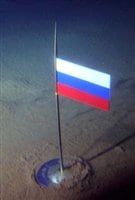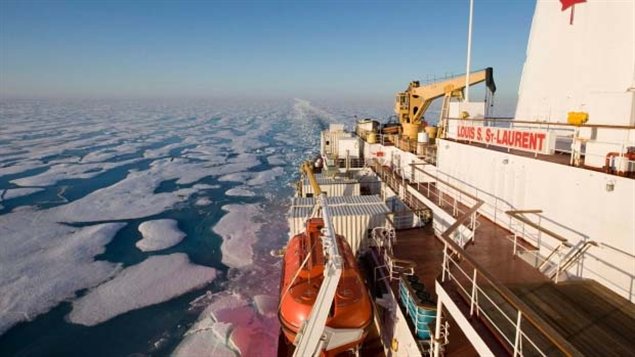For the past ten years, Arctic nations which signed the UN Convention on the Law of the Sea, have been busy mapping the Arctic seabed.
This effort has been to gather evidence to support their claims to extend their borders and exclusive territorial claims to the resource riches potentially lying under the sea.
Under the convention terms, finalized in 1982, countries can lay claim to the ocean floor well beyond their borders — as long as they provide robust scientific evidence to prove that this seabed is an extension of their continental shelf. This is in addition to long standing rights to resources within 200 nautical miles each country’s coast.
During this decade,Canada, the US, Norway, Russia, and Denmark—sometimes in cooperation- have been amassing scientific evidence in an effort to increase their claim to a piece of seafloor.
States had until Friday to submit their evidence to the UN.However in a surprise move, Canada submitted only a partial claim. The original claim did not extend to the magnetic north pole and reports say Prime Minister Stephen Harper told the researchers to go back and get evidence to support such a claim.
One Arctic affairs expert, Michael Byers, a professor at the University of British Columbia, thinks if Canadian researcher haven’t found evidence for a strong claim by now, they probably won’t.

He notes however that such a claim could increase tensions with Russia and Denmark who might then extend their claims to the North Pole as well. Russia made a symbolic claim in 2007 when it sent a ship which placed a Russian flag on the ocean floor at the North Pole.
It will take decades before a UN Commission evaluates these claims but although Professor Byers says the idea of armed conflict is very unlikely, he notes that Russia is an Arctic power, while Canada military only has a few hundred people in the north and is facing major cutbacks. He says, “”It’s a bit strange, you know, to have the mouse poking the bear here.”
A similar situation might arise with the United States.
Rob Huebert is associate director of the Centre for Military and Strategic Studies at the University of Calgary. He points out that the US which has also been agressively mapping the seafloor. has not signed the Convention and wonders what happens if there’s a dispute. He asks, What do you do about a contested area with the US if there isn’t an agreement that governs how that dispute is resolved?”







For reasons beyond our control, and for an undetermined period of time, our comment section is now closed. However, our social networks remain open to your contributions.